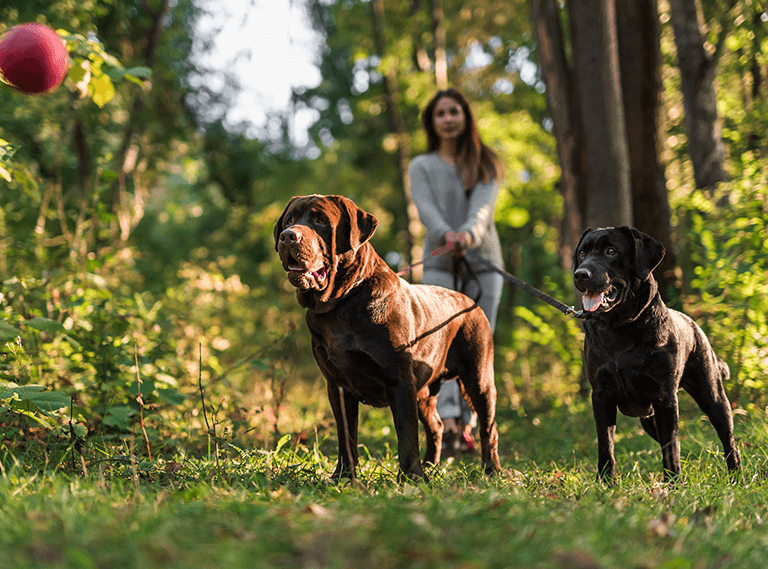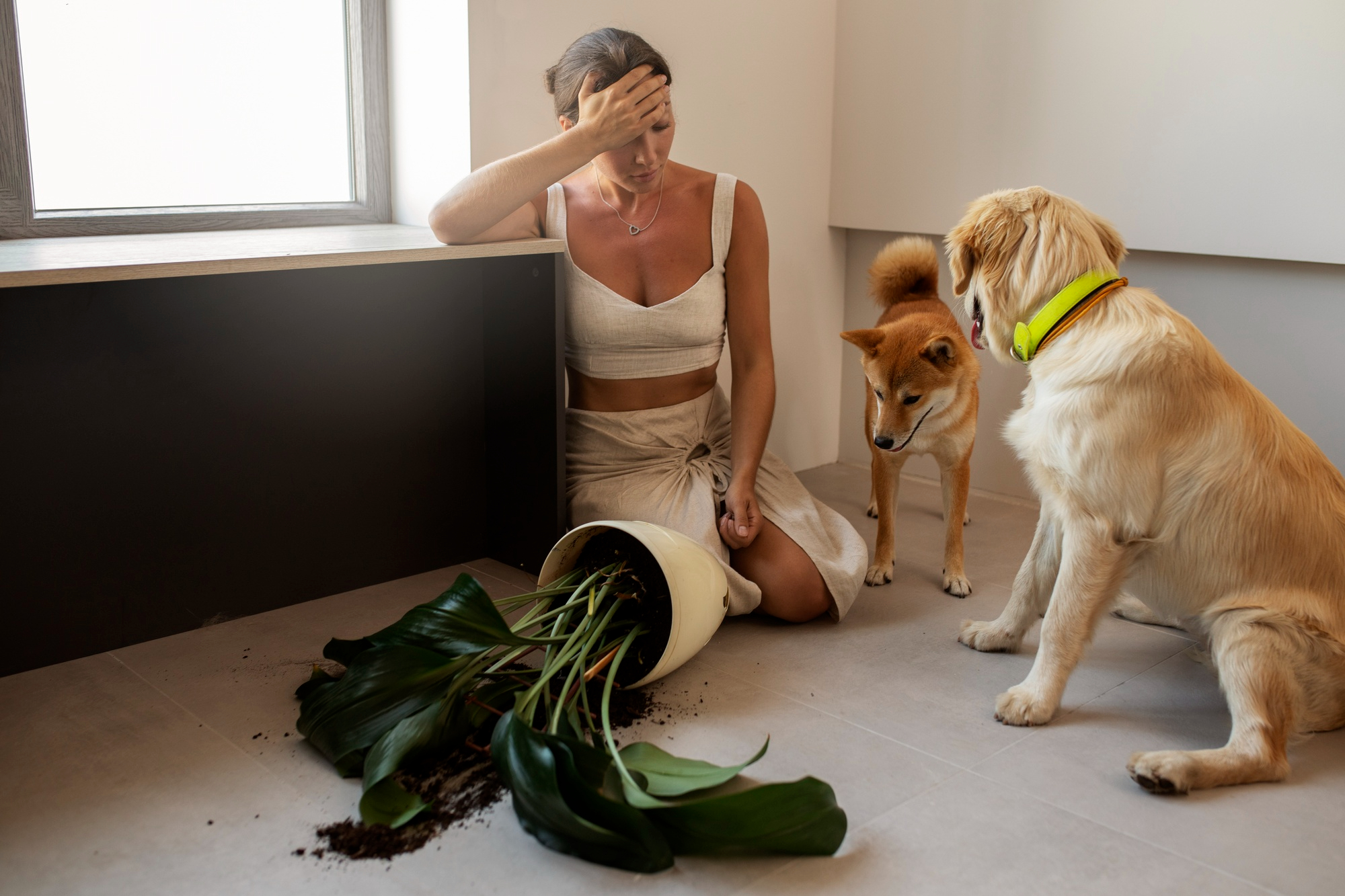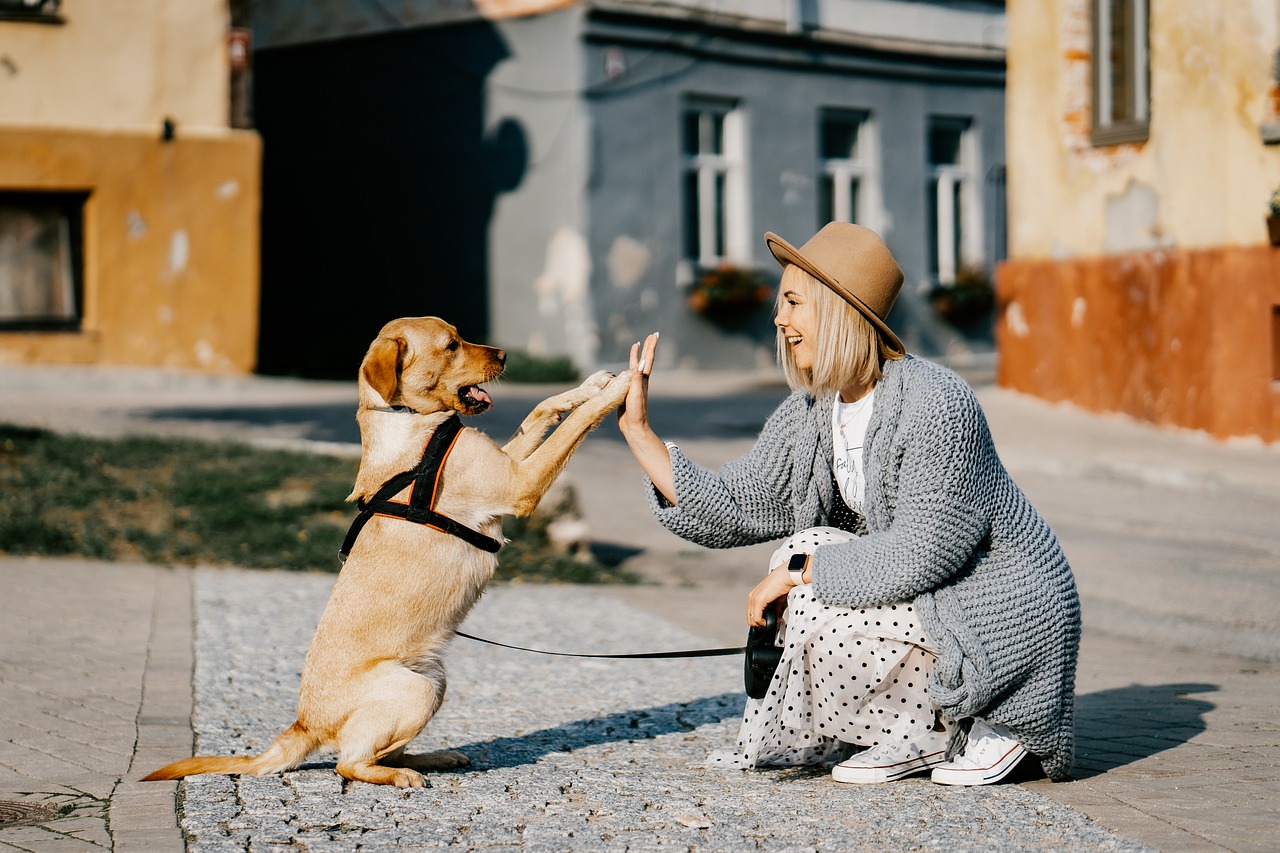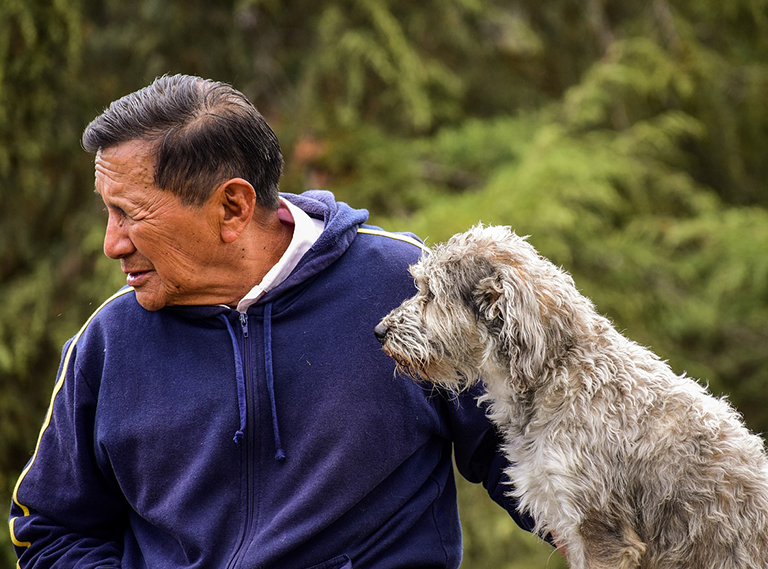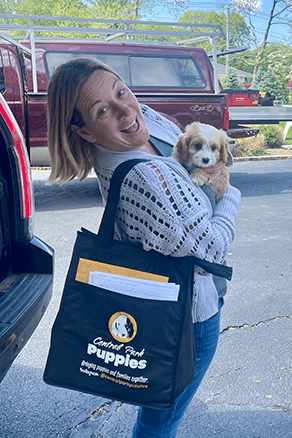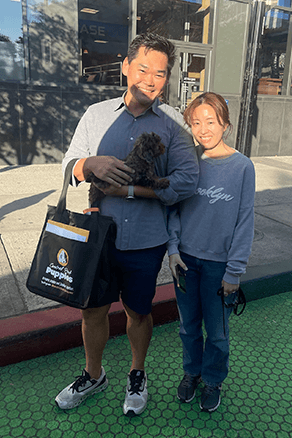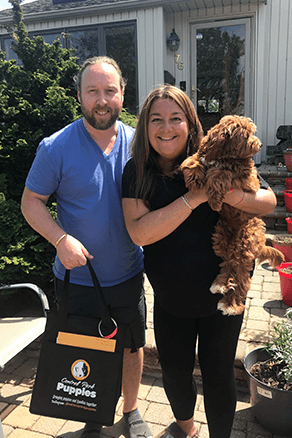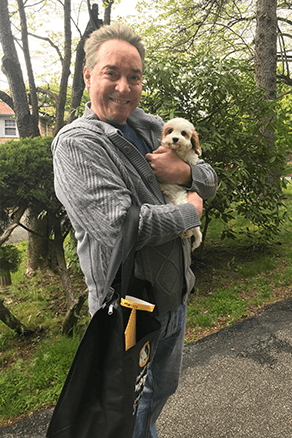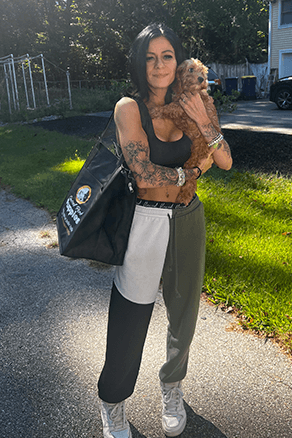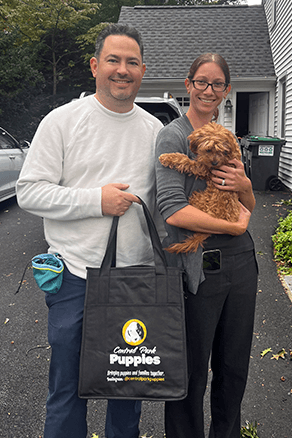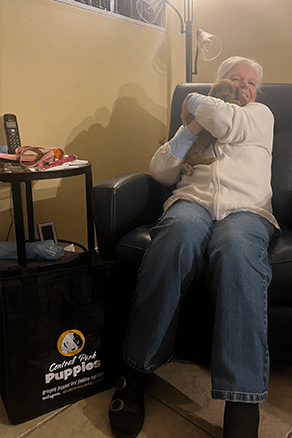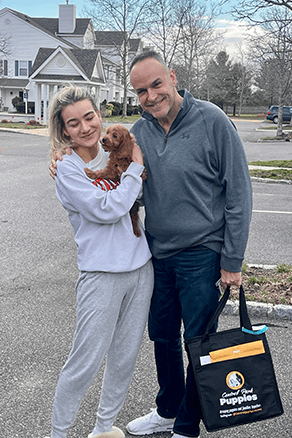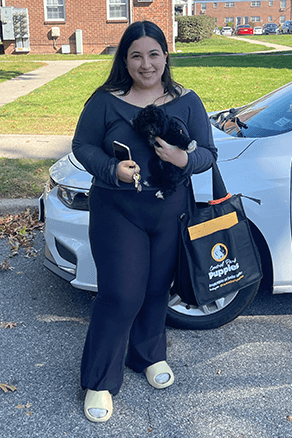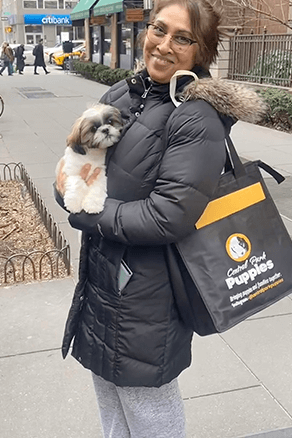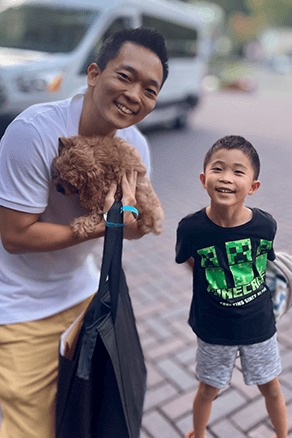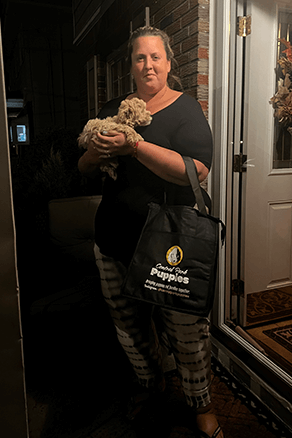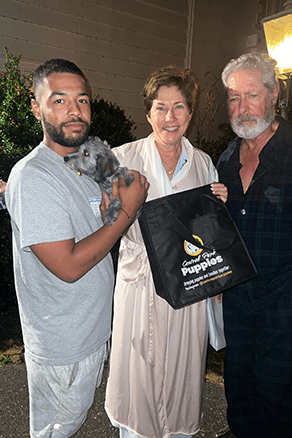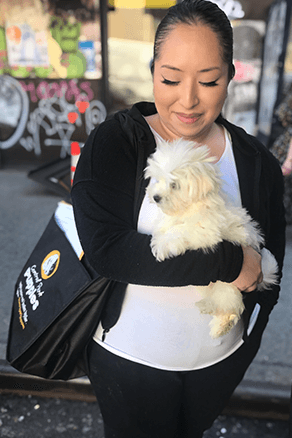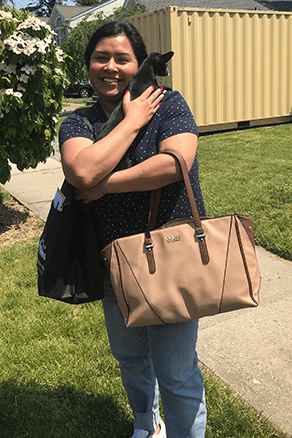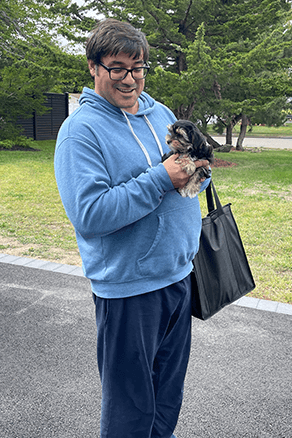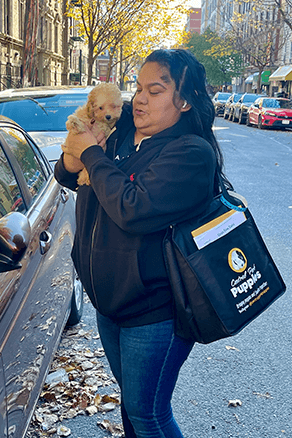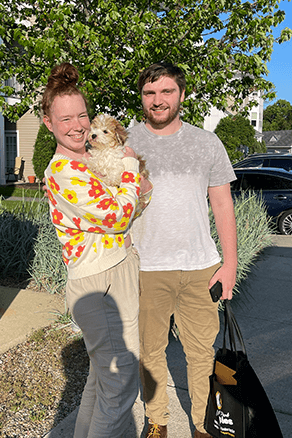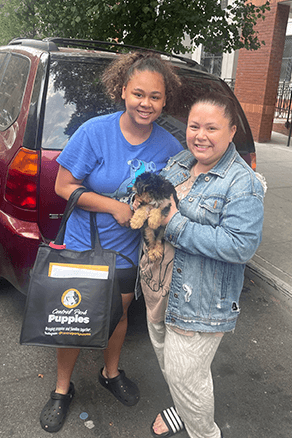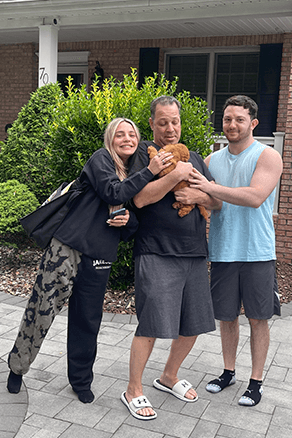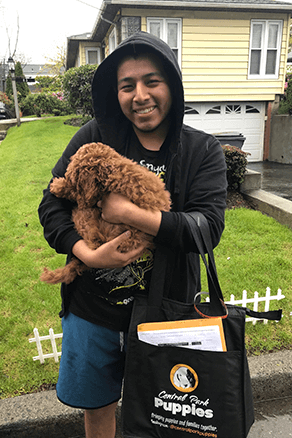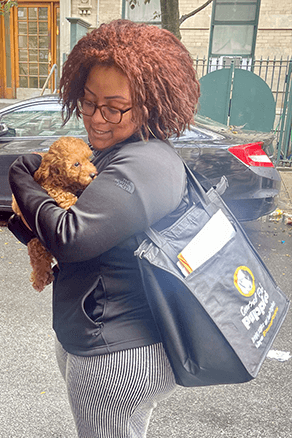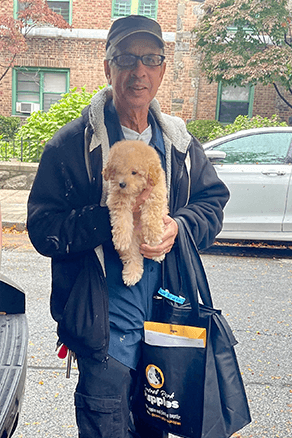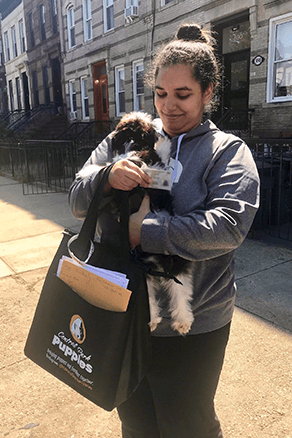Socialization is crucial to puppy development, enabling them to grow into confident and well-mannered adult dogs. Therefore, it is essential to understand when it is safe to start socializing puppies with other dogs. This article will discuss the most critical factors in puppy socialization and provide tips on introducing your pup to other canines.
When Can Puppies Be Around Other Dogs?
Puppies can start meeting and playing with other puppies the same age as soon as they are up to date on their vaccinations, usually at 10-12 weeks old. During this time, it's essential to allow them the freedom to explore and interact with other dogs in a safe environment.
Once your puppy has had all of their vaccines, you can start taking them out in public places and introducing them to new people and animals. However, it's important to remember that even after 16 weeks of age, puppies should still be supervised when interacting with other dogs.
You should try to keep your puppy away from any dogs whose vaccination status is unknown.
The Importance of Socializing Puppies
Socialization is the process of introducing a puppy to new experiences and environments. When done correctly, it will help them become more confident around other dogs and people and make them better-behaved companions in the future.
Why Socialization is Essential for Puppies
Socializing young pups is a critical part of their development. From 4-5 weeks old, puppies should be given opportunities to explore new environments and get used to human and animal contact within their species and with other animals, such as cats. According to science, the socialization of young puppies is at its most critical between 6 and 16 weeks of age.
It helps them become comfortable with new sights and sounds, build trust in humans, learn how to play with others safely, and practice essential behaviors like greeting visitors politely and managing stress effectively. By the time they reach 12 weeks old, puppies should have been exposed to a variety of experiences for them to better handle the world around them once they are fully grown.
For unvaccinated puppies or those who are not yet fully vaccinated against all infectious diseases, you must ensure that they do not come into contact with an infected dog.
The Benefits of Socialization for Both Puppies and Owners
Puppy socialization provides numerous benefits for both owners and pups alike. Early socialization can help prevent undesirable traits in adulthood, such as aggression or anxiety toward unknown or unvaccinated dogs due to lack of contact in their younger years.
Socialization also makes it easier for owners/guardians of small breeds when they begin training commands because they will already be familiar with having positive interactions with people.
Additional benefits of puppy socialization include:
- Gives puppies an understanding of appropriate behaviors toward other dogs.
- Helps reduce fearfulness/anxiety around unfamiliar stimuli which may arise during walks outside.
- Encourages friendly dog-to-dog interactions and reduces aggressive behavior.
- Makes puppy classes much easier to attend, as your puppy can focus more on the commands than curbing destructive behaviors.
Considerations for Puppy Socialization
Socializing puppies is integral to their development. To ensure your pup's safety, it is critical to understand the developmental stages a puppy goes through and which environments are safe for socializing them.
Overview of the Developmental Stages of Puppies
Puppies go through several stages from birth to adulthood, each requiring extra care and attention. Knowing when each stage begins and ends can help you plan for socializing puppies within the appropriate age range.
Neonatal Stage (0-2 Weeks)
During the neonatal stage, puppies still have their eyes closed and ears sealed shut. During this time, they are entirely dependent on their mother's milk.
Transitional Stage (2-4 Weeks)
During the transitional stage, puppies open their eyes and become more aware of their surroundings. They can start to move around independently but still rely on the warmth and nutrition from their mother. At this stage, owners must ensure puppies are kept warm and comfortable in a safe environment with minimal interaction from other dogs or humans.
Socialization Period (4-14 Weeks)
During the critical puppy socialization period, which spans between 4 - 14 weeks, pup owners should:
- Continue to receive regular vaccinations against rabies, distemper, and canine parvovirus.
- Set safe parameters for their pup to explore new environments, such as visiting outdoor parks & trails or going on long walks while helping them to circumvent contact with unknown animals.
- Take advantage of puppy classes conducted by experts who practice hygienic protocols, like requiring vaccination certificates before participating.
- Set limits and administer rewards to make bonding with other furry friends safe.
Juvenile Period (3-6 Months)
At this point, most puppies should be fully vaccinated and ready for off-leash activities. However, it is always best to consult a veterinarian or dog behaviorist if there are concerns about the pup's health or behavior. In the juvenile period, puppy owners should focus on introducing their pup to new environments and socializing with other friendly dogs.
Adolescence (6-18 Months)
During this period, it is essential to monitor a puppy's behavior when introducing them to new environments, particularly dog parks, stores that allow dogs, and other places with unfamiliar dogs. When possible, puppy owners should opt for controlled environments that allow their pup to gradually get familiar with new people and dogs, such as dog daycare or puppy meet-ups with friends.
It is recommended that puppies not be exposed to unknown or unvaccinated dogs until they are at least 16 weeks of age. With proper socialization and positive reinforcement techniques, you can give your puppy the best start to their life.
The risks of socializing puppies too early or too late
These can be serious, so it is essential to consult with your veterinarian or a dog behaviorist about when and how you should socialize your pup.
Health risks for young puppies
Puppy health risks include exposure to infectious diseases, so your puppy must be up-to-date with their vaccination schedule. When taking your puppy to dog parks, you are taking a risk that other dogs may not be vaccinated. If you take your pup to a puppy class, the facility should require proof of vaccinations, alleviating the dangers of contact with contagious illnesses.
Behavioral risks for young puppies
Puppy socialization is essential for their emotional development and helps them learn how to interact with other dogs and people. When done too early, puppies may develop aggressive behaviors when they are older. When done too late, puppies may be unable to cope with the stress of encountering new situations and people. Pet owners must know when and how to socialize their puppies to achieve the best results.
The importance of balancing socialization with caution
When introducing your puppy to other dogs, you should always be cautious and keep the dog in a safe environment. When visiting dog parks, it is best to take your puppy during off-peak hours when the number of strange dogs they encounter is reduced. When possible, opt for controlled activities, like puppy meet-ups with people familiar to you who have friendly dogs and vaccinated puppies.
When is the Right Time to Start Socializing Puppies with Other Dogs?
Regarding socializing puppies with other dogs, experts agree that the ideal time to start is between 3 weeks and 16 weeks of age. During this critical period, puppies learn skills that will shape their future personalities.
Recommended age ranges from the experts
Experts say the ideal time to start socializing your puppy is between 8 and 12 weeks old. During this period, puppies are more open to new experiences and less likely to be fearful or aggressive. This also allows them enough time to get their vaccinations before going out in public places or interacting with other dogs.
Factors that may affect the timing of socialization
The timing of puppy socialization may vary depending on factors such as breed, size, and health status. For example, smaller breeds may need more development time before safely interacting with other dogs. Additionally, puppies previously exposed to disease, parasites, or another infected dog may need to wait extra time before being introduced to other animals.
Benefits of starting socialization early
Starting puppy socialization early has many benefits for both you and your pup. Early socialization helps puppies become more secure, which can lead to better behavior overall. It also helps them learn how to interact appropriately with others, reducing the risk of aggression later in life.
How to Socialize Puppies with Other Dogs
When it comes to socializing puppies with other dogs, timing is critical. If you follow these steps, you can ensure your pup has a positive experience and the best start. Preparing for socialization
The first step is to ensure your puppy is up-to-date on their vaccinations and parasite prevention before introducing them to other dogs. This will help ensure they stay healthy during their interactions.
Choosing safe and appropriate playmates
Opt for controlled activities like puppy classes or meet-ups with people and dogs you already know. When introducing your puppy to other dogs, look for friendly, non-aggressive behaviors. If a dog seems overly excited or aggressive, keeping your pup away from them is best.
Supervising and guiding puppy interactions
When socializing puppies, it is often best to have your puppy wear a leash and maintain close supervision. This will allow you to intervene if play becomes too rough or if your puppy is overwhelmed. Additionally, you should avoid taking your pup to places that may expose them to ill-mannered or unvaccinated dogs.
Gradually increasing the duration and intensity of socialization
When socializing puppies, it is important to start slowly and gradually increase the duration and complexity of interactions. When possible, allow your pup to engage in activities with dogs of the same age. When going out into public spaces, like dog parks or walking trails, try to go during less popular times, when the number of strange dogs is reduced.
Creating a safe environment at home
Finally, an essential part of socializing puppies is providing them with a safe space at home. When possible, allow your puppy access to their own area of the house or yard and give them plenty of time for rest and play. When introducing your puppy to family members and other visitors, give them treats and praise to help create positive memories.
With the right timing and guidance, puppy socialization can be an enjoyable experience for you and your pup.
Common questions and concerns about socializing puppies with other dogs
Is it safe to take puppies to dog parks?
Dog parks can be a great place to let your puppy interact with other dogs, but it is vital to ensure your pup is fully vaccinated and up-to-date on all their vaccines before attending. This means dog parks will probably be off-limits before 16 weeks of age when puppies are fully vaccinated.
When introducing your puppy to a new environment, like a dog park, it is essential to start slowly and monitor their behavior. Look for signs of aggressive behavior and keep your pup away from unfriendly dogs.
What if a puppy has had limited socialization before adoption?
When adopting a new puppy, it is crucial to consider their history. Ask the former owner if they know the puppy's experiences with other dogs when possible. When introducing a pup to a new environment, starting slowly and providing plenty of positive reinforcement is essential.
Can older dogs help socialize puppies?
Yes! When introducing puppies to other dogs, especially older, more experienced dogs, keeping the activities low-intensity and maintaining close supervision is necessary. Try to include dogs the same age as your pup when possible. When introducing new dogs into an existing pack, ensure they are all up-to-date on their vaccinations and that the environment is safe.
Concluding Thoughts | When Can Puppies Be Around Other Dogs?
When a puppy is 16 weeks of age and fully vaccinated (including from rabies), they can be gradually introduced to dogs you don't know.
Before then, puppies should socialize with family members, their mothers, and puppies of the same age. When introducing a puppy to other dogs, remain mindful of their behavior and observe any signs of aggression. Provide your pup a safe space to explore new activities and build confidence when possible.
Low-stress activities, like neighborhood walks or even long hikes with family members and other familiar dogs, are great ways to help your pup build trust and feel comfortable in their capabilities. When visiting dog parks or participating in off-leash activities, keep your pup away from unfriendly dogs and, if possible, check that the other animals are up-to-date on their vaccinations. With the right timing and guidance, socializing puppies with other dogs can be an enjoyable experience for you and your pup. If you found this information valuable, please share it!
FAQs
At what age can puppies interact with other dogs?
It is generally safe for puppies to interact with unfamiliar dogs when they are 16 weeks of age and fully vaccinated.
Can my puppy be around fully vaccinated dogs?
It is generally safe for puppies to interact with other dogs, as long as they are fully vaccinated and the environment is safe, at around 10-12 weeks.
Can I take my puppy out after 2nd vaccination?
Puppies typically receive their second vaccination at 9-11 weeks old. It is best to wait 10 to 14 days after your puppy receives their vaccinations before taking them on outdoor walks and exposing them to other animals and people.
When can puppies be around unvaccinated dogs?
Regarding puppies being around unvaccinated dogs, it's best to err on the side of caution. Veterinarians suggest avoiding contact with all unknown or unvaccinated dogs until their vaccination series is complete.
Can I take my 8-week-old puppy to a friend's house?
Taking your 8-week-old puppy to a friend's house can be a great way to socialize them. First, make sure that your pup has received all necessary vaccinations. It is also essential to bring supplies such as food and water bowls, toys, and blankets.
When can I start walking my puppy on a leash?
Walking your puppy on a leash is an important part of their training and development. It's crucial to start leash training as soon as possible, preferably when your puppy is between 8-10 weeks old.
Can I carry my unvaccinated puppy outside?
Yes, you can carry them in your arms, take them out in a carrier, stroller, or wagon, or even push them in a stroller in areas populated by dogs you know are vaccinated. Additionally, you can set up play dates with other vaccinated puppies and interact with them in an enclosed area.
What are unvaccinated puppies at risk of?
Unvaccinated puppies risk contracting potentially fatal diseases such as Canine parvovirus and other parasites. Vaccinations are essential to protect puppies from these risks.
Can you bathe an unvaccinated puppy?
Yes, you can bathe an unvaccinated puppy, but it is essential to take precautions to ensure their health and safety. Most veterinarians also recommend waiting 1-2 weeks after each vaccine before bathing a puppy.
